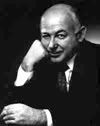| View previous topic :: View next topic |
| Author |
Message |
Mira
Joined: 05 Jan 2006
Posts: 16
Location: Raleigh, NC
|
 Posted: Mon Feb 19, 2007 7:50 pm Post subject: Newbie post: common errors by Arab learners of English Posted: Mon Feb 19, 2007 7:50 pm Post subject: Newbie post: common errors by Arab learners of English |
 |
|
| I just finished getting my ESL certificate here in the US and started an ESL program at the local mosque for adult women. The class composition is varied but primarily the women are from Saudi Arabia, Jordan, Kuwait, and Morocco. The program is going well but I'd like to tailor it more towards the common errors that Arabic speakers make when learning English. In the research that I've done so far, I haven't found anything particularly useful that I can apply to my lesson planning. Does anyone have any good links or book recommendations? |
|
| Back to top |
|
 |
Henry_Cowell

Joined: 27 May 2005
Posts: 3352
Location: Berkeley
|
 Posted: Mon Feb 19, 2007 7:57 pm Post subject: Posted: Mon Feb 19, 2007 7:57 pm Post subject: |
 |
|
| The book Learner English (edited by Michael Swan and Bernard Smith) is the standard for L1-interference issues. The chapter on Arabic speakers provides nearly 20 pages of information. |
|
| Back to top |
|
 |
veiledsentiments

Joined: 20 Feb 2003
Posts: 17644
Location: USA
|
 Posted: Tue Feb 20, 2007 12:06 am Post subject: Posted: Tue Feb 20, 2007 12:06 am Post subject: |
 |
|
What level are the students and what skills are you teaching?
VS |
|
| Back to top |
|
 |
Mira
Joined: 05 Jan 2006
Posts: 16
Location: Raleigh, NC
|
 Posted: Wed Feb 21, 2007 1:13 am Post subject: Posted: Wed Feb 21, 2007 1:13 am Post subject: |
 |
|
| Thanks for the tip on the book - I'll definitely check it out. The students are primarily Level 1 and 2. I'm focusing teaching survival skills: reading a bus schedule, opening a bank account, using an ATM, visiting a doctor's office, etc. |
|
| Back to top |
|
 |
veiledsentiments

Joined: 20 Feb 2003
Posts: 17644
Location: USA
|
 Posted: Wed Feb 21, 2007 2:12 am Post subject: Posted: Wed Feb 21, 2007 2:12 am Post subject: |
 |
|
At this level the differences are not that crucial for your teaching, but what will probably jump out at you first is that there is not a 'p' in Arabic. And it can take them years to learn to discern the difference between p/b - no matter how you explain it. We just don't hear sounds that don't exist in our language.
Easier to overcome is the basic verb 'to be' which doesn't occur in present tense in Arabic. They would say "Ena taliba" rather than "I am a student." Which also brings up that Arabic doesn't have the indefinite article a/an. It does have 'the' but the rules of usage are slightly different.
I have never taught conversation, but I would think that these basic differences would come up quite quickly...
VS |
|
| Back to top |
|
 |
tarte tatin

Joined: 02 Mar 2007
Posts: 247
Location: Istanbul
|
 Posted: Thu Apr 05, 2007 7:18 am Post subject: Posted: Thu Apr 05, 2007 7:18 am Post subject: |
 |
|
I think teaching conversation will pose few problems as Arabs seem to get a good command of spoken English quite easily.
In my experience literacy is a huge problem for many of them, they read slowly so may need help to speed up and they find spelling very difficult. This may not be too much of a concern for these women at their level but eventually they will want to become literate. |
|
| Back to top |
|
 |
|

